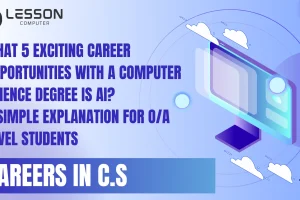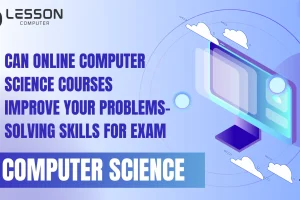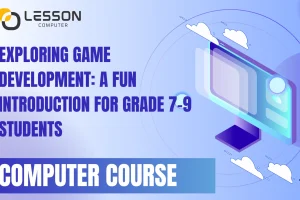
The Importance of Digital Literacy for Students in Mauritius
Digital literacy has shifted from a luxury to a fundamental skill in today’s tech-driven world. For students in Mauritius, being proficient with digital tools is essential for achieving academic success and securing future job opportunities. As the country aims for digital advancement, the significance of digital literacy is more important than ever. This article delves into the importance of digital literacy for students in Mauritius, looking at how it affects their lives and how it can empower them to contribute meaningfully to their communities and the global stage. In a time when digital transformation is changing various industries, providing the younger generation with these skills is crucial for their personal growth and the nation’s overall development.
1. Understanding Digital Literacy:

Digital literacy includes a wide array of skills that extend well beyond simply knowing how to use a computer or smartphone. It involves the ability to find, evaluate, create, and share information effectively through various digital technologies. For students, being digitally literate means not only being able to use digital tools but also being able to navigate the extensive digital world safely, critically, and efficiently. In Mauritius, access to technology is growing quickly, thanks to government initiatives like the Smart Mauritius Strategy and a notable increase in internet connectivity. Consequently, students are being exposed to a vibrant digital environment from an early age. However, just providing access to devices and the internet is only the first step. To truly succeed in this setting, students need to cultivate the essential skills required to analyze and interpret the vast amount of information they encounter online. This will help them differentiate between trustworthy sources and misinformation, allowing them to leverage digital technologies effectively.
Key Components of Digital Literacy:
Cybersecurity Awareness: Staying safe in the digital world is more important than ever! It’s essential to protect yourself from online threats such as phishing scams, hacking attempts, and cyberbullying. Equip yourself with the knowledge and strategies needed to navigate the internet securely and with confidence!
Technical Skills: Making the most of digital tools is crucial in our technology-focused world. This includes everything from effectively using laptops for research and productivity to taking advantage of tablets for tasks on the move. Additionally, gaining proficiency in different software applications—ranging from word processors and spreadsheets to creative design tools—improves your capacity to create, collaborate, and innovate in diverse settings. By mastering these digital resources, you not only enhance your efficiency but also gain the confidence to tackle the challenges of modern life.
Information Literacy: It’s important to cultivate strong online research skills and the ability to assess the credibility of information critically. This helps ensure that the information we collect is both accurate and trustworthy, allowing for informed decision-making and a deeper understanding of different subjects.
Media Literacy: Understanding how media platforms work is essential in today’s digital world. This means not only getting to know the algorithms and how they distribute content but also learning to critically evaluate the information they present. It’s important to identify biases, whether they come from the platform or the sources it promotes, to separate fact from fiction. Moreover, staying alert to misinformation enables us to make informed choices and participate in meaningful conversations. By developing these skills, we can better navigate the complexities of media consumption with increased awareness and insight.
Digital Communication: Mastering the art of communication through email, messaging apps, and social media can significantly improve your professional and personal interactions. Whether you’re writing a well-crafted email, sharing updates on messaging platforms, or connecting with your audience on social media, effective communication can create opportunities and build meaningful relationships. Let’s dive into how to use these tools to boost your communication skills!
2. Why Digital Literacy is Crucial for Students in Mauritius:
1). Enhancing Educational Opportunities
The incorporation of technology in classrooms has turned digital literacy into a crucial element of contemporary education. Programs like e-learning platforms and virtual classrooms are giving Mauritian students the chance to access high-quality education beyond their immediate surroundings. To make the most of these opportunities, students need to cultivate digital literacy skills that allow them to efficiently navigate and use different educational tools.
2). Preparing for the Future Workforce
Mauritius is transitioning towards a knowledge-based economy, marking a notable change in its labor market. With the growth of sectors like tourism, finance, information technology, and healthcare, the need for tech-savvy professionals is on the rise. In this scenario, digital literacy is gaining importance, equipping students with vital foundational skills such as coding, data analysis, and digital communication. These skills are essential for thriving in future job markets.
3). Promoting Lifelong Learning
Digital tools significantly enhance educational opportunities for students by providing access to a wide range of resources. Platforms like YouTube, educational software, and Coursera offer a variety of instructional videos, courses, and materials that motivate learners to explore subjects that might not be included in their regular curriculum. By developing their digital literacy skills, students become adept at searching for, critically assessing, and effectively using these resources. This ability not only fosters continuous self-directed learning but also enriches their overall educational journey by opening up new paths for knowledge and personal development.
4). Encouraging Social and Civic Participation
Social media and digital platforms give students the opportunity to share their opinions and get involved in different initiatives. These tools allow them to participate in community projects, share ideas, and impact policy decisions. For example, in Mauritius, students are actively using these platforms to raise awareness about environmental concerns, celebrate their cultural heritage, and join in on global conversations.
3. Challenges in Building Digital Literacy in Mauritius:

While fostering digital literacy in Mauritius is crucial for progress, it certainly doesn’t come without its challenges. Navigating these obstacles is essential for harnessing the full potential of a digitally empowered society.
1). Unequal Access to Technology
In Mauritius, urban areas have made notable progress in enhancing their digital infrastructure, featuring high-speed internet, modern technology, and a variety of digital resources that improve educational opportunities. In contrast, rural regions lag behind, with residents often facing challenges due to limited internet access and outdated technology. Consequently, students in these areas encounter significant obstacles in accessing online learning materials, engaging in digital classrooms, and acquiring vital technological skills. This widening digital divide not only impedes individual educational advancement but also exacerbates broader socioeconomic inequalities, putting rural students at a disadvantage compared to their urban peers. The disparity in access to technology deepens existing inequalities and restricts the potential for students in rural areas to thrive in an increasingly digital landscape.
2). Lack of Teacher Training
Educators play a vital role in providing students with the digital literacy skills that are becoming ever more important in our technology-driven society. However, many teachers lack the necessary training and resources to effectively integrate technology into their teaching practices. This shortfall can limit their capacity to engage students fully and improve learning experiences using digital tools.
3). Cybersecurity Risks
As students increasingly use digital platforms for educational and social interactions, they become more vulnerable to various cyber threats. These threats encompass scams that trick them into revealing personal or financial information, cyberbullying that can cause emotional distress and hinder academic performance, and privacy breaches that put their personal data at risk. Without thorough education and training on these matters, students might not identify the signs of these dangers or understand how to protect themselves effectively. This lack of awareness can greatly hinder their progress toward becoming digitally literate individuals, making it crucial to offer resources and guidance that enable them to navigate the online world safely and responsibly. Engaging in conversations about online safety, teaching practical skills for recognizing and addressing threats, and creating a supportive environment to tackle these issues are vital steps in improving their digital literacy.
4). Misinformation and Fake News
In today’s digital landscape, a vast amount of information is readily available at our fingertips; however, much of this content is laced with misinformation. As a result, it has become increasingly vital for students to cultivate strong critical thinking skills. These skills enable them to effectively evaluate and differentiate between credible sources of information and those that are unreliable. Developing this ability is a fundamental component of digital literacy, empowering students to navigate the complexities of online information responsibly and make informed decisions based on accurate data. By honing their critical thinking skills, students will be better equipped to engage with the digital world thoughtfully and discerningly.
4. How Digital Literacy Benefits Students:
Digital literacy goes beyond merely understanding technology; it opens up a world of possibilities for students. It empowers them in various ways, enhancing their confidence, creativity, and critical thinking skills. By becoming digitally literate, students not only master the tools at their fingertips but also unlock their potential to innovate, collaborate, and thrive in an ever-evolving digital landscape.
1). Boosting Academic Performance
Access to online resources, research tools, and collaborative platforms significantly enhances students’ academic performance. These digital tools provide a wealth of information that can be accessed anytime and anywhere, allowing students to explore diverse subjects and engage with a variety of learning materials. For instance, platforms like Google Classroom facilitate the organization of coursework, assignments, and communication between teachers and students, fostering a more interactive and engaging learning environment. Similarly, Microsoft Teams offers features for real-time collaboration, enabling students to work together on projects, share documents, and hold discussions seamlessly. By incorporating these tools into their learning processes, students not only improve their efficiency but also develop essential skills for collaboration and digital literacy that are crucial in today’s academic and professional landscape.
2). Developing Critical Thinking
Digital literacy equips students with the ability to assess and analyze information critically. This fundamental skill is vital in today’s information-rich environment, where individuals are bombarded with a vast array of data from various sources each day. By honing their digital literacy, students learn to discern reliable information from misinformation, enabling them to make well-informed decisions based on evidence and critical thinking.
3). Improving Communication Skills
Digital literacy plays a crucial role in developing effective communication skills, encompassing activities such as composing professional emails and engaging in online forums. This competency is particularly significant for students as they prepare for careers where digital communication is a fundamental aspect of professional interactions.
4). Promoting Creativity
Digital tools like Canva, Adobe Photoshop, and various video editing software play a significant role in fostering creativity among students. Canva, for instance, offers an intuitive interface and a wide range of templates for designing eye-catching presentations, posters, and social media graphics. This accessibility encourages students to experiment with design elements, color schemes, and layouts, thereby enhancing their visual communication skills.
Adobe Photoshop, a more advanced graphic design tool, enables students to manipulate images and create intricate digital artwork. With features like layers, filters, and advanced editing capabilities, students can realize more complex ideas and refine their artistic techniques, pushing the boundaries of traditional art forms.
Moreover, video editing software, such as Adobe Premiere Pro or Final Cut Pro, allows students to produce and edit videos, integrating video clips, music, and special effects. This capability encourages storytelling through multimedia projects, enhancing both their technical skills and creative flair.
By utilizing these digital tools, students are not only able to express their individual creativity but also prepare for future endeavors in various fields such as graphic design, marketing, and content creation. These applications serve as powerful platforms for innovation, collaboration, and self-expression, equipping students with essential skills for the digital age.
5. Steps to Promote Digital Literacy in Mauritius:
Mauritius has a vibrant opportunity to boost digital literacy among students, and this can be achieved through a united front of educators, policymakers, and parents. Here’s how we can make a difference together:Mauritius has a vibrant opportunity to boost digital literacy among students, and this can be achieved through a united front of educators, policymakers, and parents. Here’s how we can make a difference together:
1). Integrate Digital Skills into the Curriculum
Integrating coding, digital media literacy, and cybersecurity into school curricula is essential for equipping students with vital skills from an early age. By exposing young learners to coding, they gain the ability to comprehend and create technology, fostering critical thinking and problem-solving abilities. Digital media literacy empowers students to navigate and analyze information in an increasingly digital world, helping them discern credible sources and use media responsibly. Meanwhile, understanding cybersecurity principles not only safeguards their personal information but also prepares them to make informed decisions about their digital footprints. Together, these components create a well-rounded educational experience that prepares students for the challenges and opportunities of the digital age.
2). Train Educators
Equipping teachers with dynamic training programs and rich resources to harness digital tools will foster a vibrant, tech-savvy learning environment that sparks innovation and engagement!.
3). Improve Digital Infrastructure
Increasing internet access and providing schools with modern technology are essential steps in bridging the digital divide. These initiatives can create equal educational opportunities for all students, enabling them to leverage digital resources for learning and personal development.
4). Raise Awareness About Cybersecurity
Workshops focused on online safety and privacy play a crucial role in equipping students with the knowledge and skills they need to navigate the digital landscape securely. These sessions cover a wide range of topics, including recognizing and managing online threats, understanding privacy settings on social media platforms, and the importance of creating strong, unique passwords. By participating in these workshops, students learn how to protect their personal information, identify potential scams or cyberbullying, and develop responsible online behaviors. Ultimately, these educational experiences empower young individuals to confidently safeguard themselves while engaged in various online activities.
5). Encourage Hands-On Learning
Programs such as coding boot camps, exciting hackathons, and dynamic robotics competitions provide students with hands-on opportunities to enhance their digital literacy skills. These immersive experiences not only make learning about technology and programming more enjoyable but also allow students to apply their knowledge in real-world scenarios, fostering creativity and critical thinking. Through collaboration and competition, participants can develop a deeper understanding of digital tools and concepts while motivating each other in a fun and engaging environment.
6. Digital Literacy Success Stories in Mauritius:
Mauritius is leading the way with several exciting initiatives that underscore the vital role of digital literacy! These programs are not just about technology; they empower individuals and communities to thrive in the digital age.
- The ICT Skills Development Programme: The government initiative seeks to provide young individuals with essential ICT skills by offering various training programs and workshops. This program is designed to enhance their knowledge and proficiency in information and communication technology, preparing them for future opportunities in the digital world.
- The Early Digital Learning Programme: Incorporated into the curriculum of primary schools, this innovative program aims to familiarize students with various technological tools and concepts from a young age. By engaging children in hands-on activities and interactive lessons, the initiative fosters early interest in technology, coding, and digital literacy. This foundational exposure not only enhances their problem-solving skills but also prepares them for a rapidly evolving digital landscape, ensuring they are well-equipped to navigate future educational and career opportunities in an increasingly tech-driven world.
- Private Sector Collaboration: Companies such as Mauritius Telecom and Emtel have initiated several comprehensive projects aimed at enhancing internet accessibility across the region. These initiatives are designed not only to expand network coverage but also to foster greater participation in digital education. By providing better connectivity, these companies aim to bridge the digital divide, ensuring that more individuals and communities have the resources and tools necessary to engage with online learning platforms and access educational materials. Through these efforts, they are working to empower citizens with the skills needed for the increasingly digital world, thus promoting overall educational advancement and economic growth in the area.
These initiatives show that, with a proactive mindset and the right strategies, Mauritius can equip its students to excel in the digital age.
7. The Role of Parents in Fostering Digital Literacy:
Parents play a vital role in fostering their children’s digital skills, which are increasingly essential in today’s technology-driven world. By actively encouraging responsible use of technology, they can instill values of online safety, privacy, and ethical behavior. This involves setting boundaries around screen time, promoting open discussions about the digital landscape, and modeling healthy tech habits themselves.
Additionally, providing access to a variety of learning tools, such as educational apps, coding platforms, and interactive online resources, empowers children to explore and develop their digital abilities more effectively. Parents can also engage in collaborative activities, such as playing educational games together or guiding their children through online projects, to make the learning process more engaging and interactive. Through these supportive actions, parents can help their children become not only proficient users of technology but also critical thinkers and responsible digital citizens.
Tips for Parents:
- It is important to monitor screen time carefully to ensure that there is a healthy balance between online and offline activities. This can be achieved by setting specific time limits for digital engagement and encouraging regular breaks for physical activity, hobbies, and family interactions.
- By doing so, individuals can enjoy the benefits of technology while also cultivating rich, real-life experiences that promote overall well-being.
- To enhance the educational journey, consider introducing a range of educational apps and websites that cater to various interests and age groups. These platforms often include interactive features, games, and multimedia content that make learning more dynamic and enjoyable.
- By selecting high-quality resources, you can spark enthusiasm for subjects like math, science, and literacy, while also providing opportunities for critical thinking and creativity.
- Engaging in detailed conversations about online safety is essential in today’s digital landscape. Discuss the importance of safeguarding personal information, recognizing online scams, and understanding the implications of sharing content on social media.
- By collaboratively setting clear guidelines and reasonable boundaries for social media usage, you can help foster responsible online behavior and empower individuals to make informed choices in their digital lives.
Conclusion:
Digital literacy is an incredible gateway to countless opportunities for students in Mauritius! By empowering young minds with the skills to thrive in the digital landscape, we can pave the way for a bright future for all. For students, digital literacy goes beyond academics or career prospects; it’s a lifelong tool that fuels their ability to learn, innovate, and make meaningful contributions to society.
Let’s embark on the journey to digital literacy today! With the united efforts of educators, parents, and the government, Mauritius can cultivate a generation of digitally savvy, globally competitive students ready to shape a promising future. Together, we can make this vision a reality!



